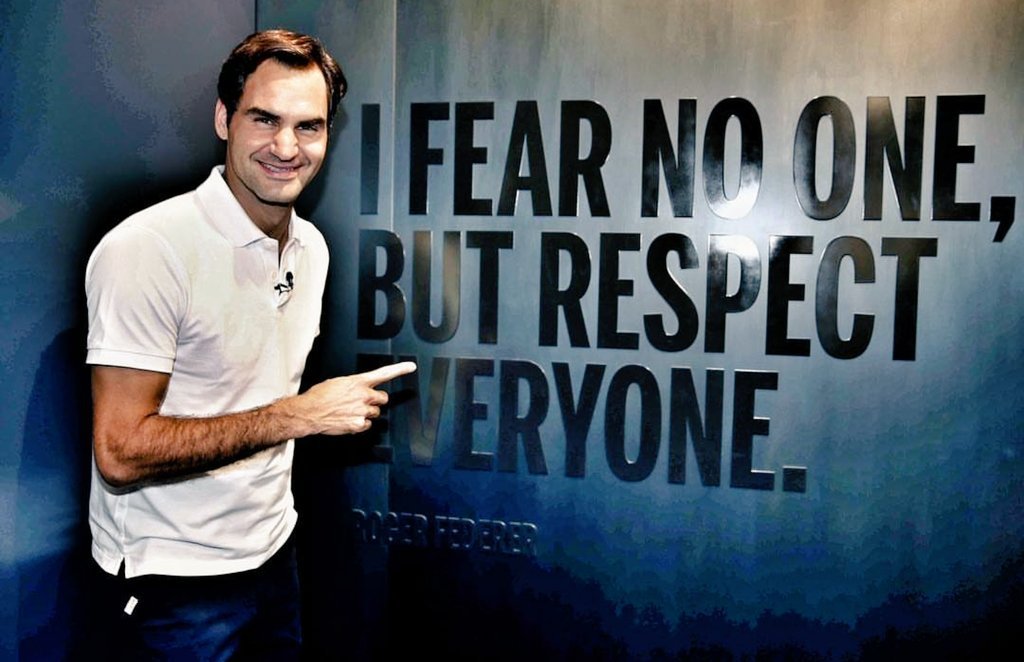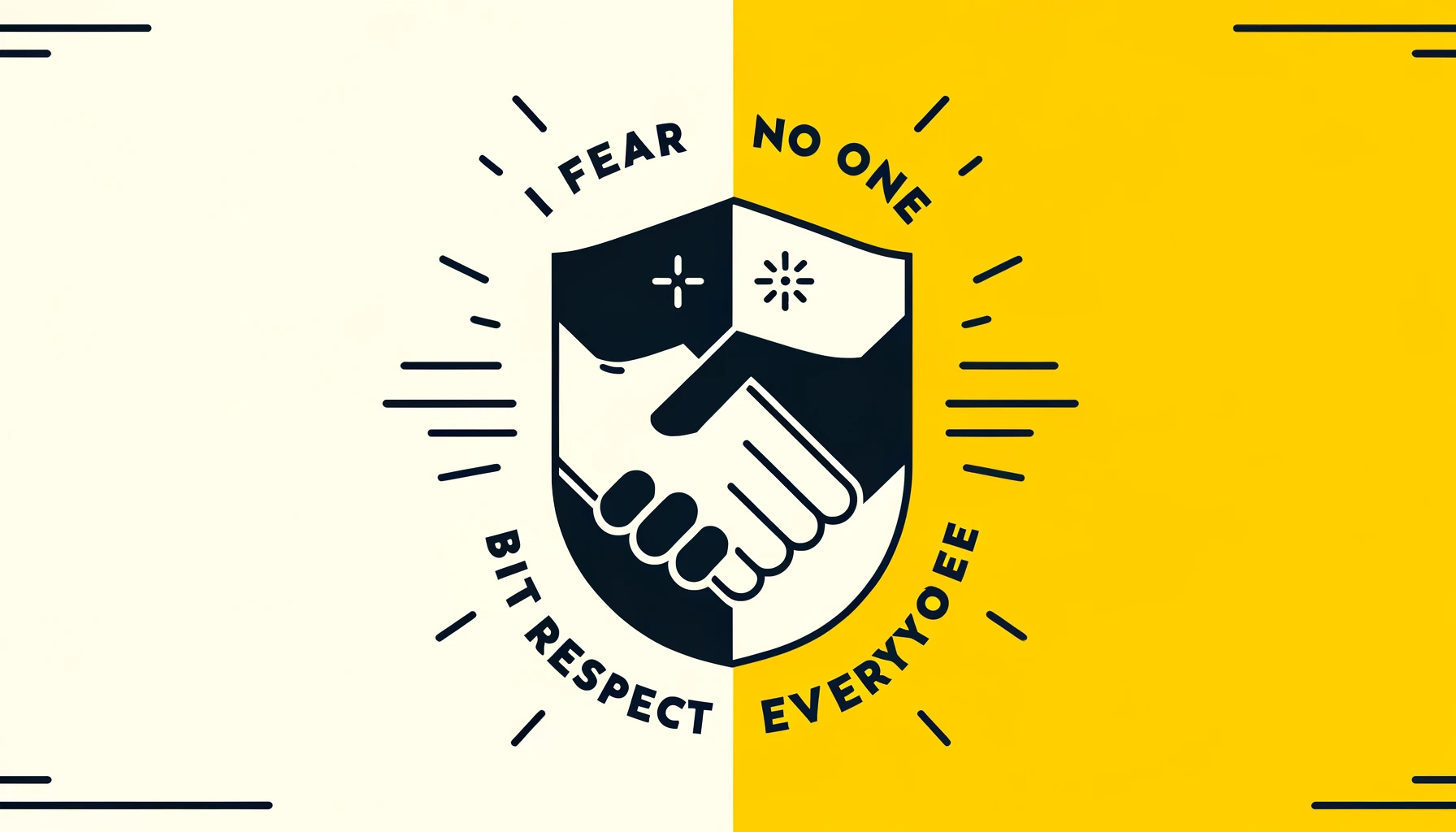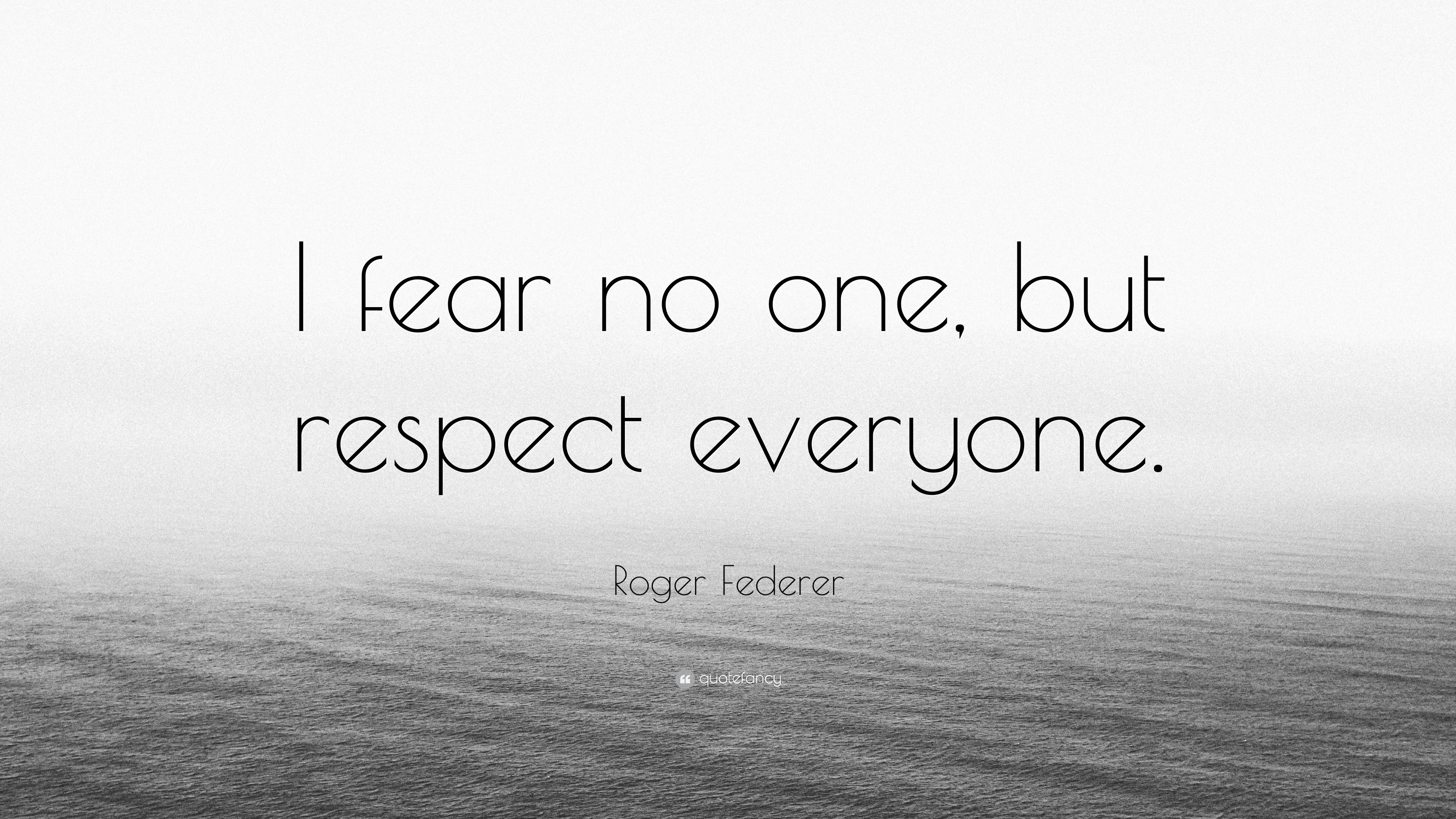i fear no one, but respect everyone. – tymoff

Introduction:
i fear no one, but respect everyone. – tymoff, “I fear no one, but respect everyone.” These words, attributed to the enigmatic figure known as Tymoff, encapsulate a philosophy that resonates with individuals across cultures and generations. In a world often characterized by conflict and division, Tymoff’s ethos offers a powerful reminder of the importance of courage tempered by humility, strength balanced with empathy. This article delves into the origins of this profound statement, examines its implications for personal growth and interpersonal relationships, and explores its relevance in today’s tumultuous world.

Unraveling the Mystery of Tymoff:
Tymoff is a figure shrouded in mystery, with little known about their true identity or historical context. The quote, “I fear no one, but respect everyone,” is often attributed to Tymoff, but the origins of the phrase remain uncertain. Some speculate that Tymoff may be a fictional character created to convey a particular philosophy, while others believe that Tymoff could be a pseudonym adopted by a real individual or group.
Must Read=errordomain=nscocoaerrordomain&errormessage=could not find the specified shortcut.&errorcode=4
Regardless of its origins, the message attributed to Tymoff has captured the imagination of many, inspiring reflection and contemplation on the nature of fear, respect, and human interaction. By examining the essence of Tymoff’s philosophy, we can uncover valuable insights into the complexities of human nature and the pursuit of personal excellence.
Courage in the Absence of Fear:
At first glance, the assertion “I fear no one” may seem bold and defiant, suggesting a lack of vulnerability or apprehension. However, a deeper interpretation reveals a profound truth: true courage is not the absence of fear but the ability to confront it head-on. Tymoff’s declaration speaks to a mindset characterized by resilience and self-assurance, where individuals are empowered to face challenges with confidence and determination.
In the face of adversity or uncertainty, fear can often be a natural response, signaling the presence of danger or potential harm. However, allowing fear to dictate our actions can lead to paralysis or avoidance, inhibiting personal growth and limiting our potential. Tymoff’s philosophy encourages us to acknowledge our fears without being controlled by them, fostering a sense of inner strength and fortitude.
Respect as a Foundation for Human Connection:
The second part of Tymoff’s statement—”but respect everyone”—shifts the focus from individual courage to interpersonal dynamics. Respect, in this context, is not merely a superficial gesture or formality but a fundamental principle that underpins healthy relationships and social harmony. By extending respect to others, regardless of their background or beliefs, we acknowledge their inherent worth and dignity as fellow human beings.

Respect involves recognizing and valuing the perspectives, experiences, and boundaries of others, even when they differ from our own. It requires empathy, humility, and a willingness to listen and learn from those around us. Tymoff’s philosophy reminds us that true strength is not demonstrated through domination or intimidation but through mutual understanding and cooperation.
The Interplay Between Fear and Respect:
Tymoff’s assertion—”I fear no one, but respect everyone”—highlights the delicate balance between fear and respect in human relationships. While fear can serve as a barrier to meaningful connection, respect has the power to bridge divides and foster empathy and compassion. By cultivating a mindset characterized by fearlessness and respect, we create an environment conducive to collaboration, cooperation, and mutual growth.
It is essential to recognize that fear and respect are not mutually exclusive but can coexist within the human experience. Fear, when tempered by respect, becomes a catalyst for empathy and understanding, prompting us to approach others with sensitivity and humility. Likewise, respect, when grounded in courage, enables us to navigate unfamiliar or challenging situations with grace and integrity.
Applications in Everyday Life:
The wisdom embedded in Tymoff’s philosophy extends far beyond theoretical contemplation, finding practical relevance in our daily lives. Whether in personal relationships, professional endeavors, or societal interactions, the principles of fearlessness and respect can guide our actions and decisions, leading to more meaningful and fulfilling experiences.
In personal growth and self-development, embracing fear with courage allows us to step outside our comfort zones and pursue our aspirations with confidence. By respecting ourselves and others, we cultivate a sense of integrity and authenticity that enriches our relationships and enhances our sense of belonging.
In leadership and teamwork, fearlessness inspires trust and inspires others to reach their full potential, while respect fosters collaboration and fosters a culture of inclusivity and empowerment. By embodying Tymoff’s philosophy, leaders can create environments where individuals feel valued, supported, and motivated to excel.
In societal discourse and civic engagement, fearlessness enables us to confront injustice and advocate for positive change, while respect encourages dialogue and empathy across diverse perspectives. By embracing Tymoff’s ethos, we can work towards building a more compassionate and equitable society.

FAQ
- Who is Tymoff, and why is the quote “I fear no one, but respect everyone” attributed to them?
- Tymoff is an enigmatic figure often associated with philosophical statements. The quote “I fear no one, but respect everyone” is attributed to Tymoff due to its profound and thought-provoking nature.
- What does the phrase “I fear no one” imply in Tymoff’s philosophy?
- “I fear no one” suggests a mindset of fearlessness and courage, where individuals confront challenges and adversity without being paralyzed by fear.
- Does “I fear no one” mean that individuals should never experience fear?
- No, it means individuals acknowledge fear but choose not to be controlled by it. It’s about facing fear with courage rather than letting it dictate actions.
- How does Tymoff’s philosophy view fear?
- Tymoff’s philosophy views fear as a natural human emotion that can either inhibit or propel personal growth, depending on how it’s managed and confronted.
- What does “but respect everyone” signify in Tymoff’s statement?
- “But respect everyone” emphasizes the importance of treating others with dignity, empathy, and understanding, regardless of differences in beliefs or backgrounds.
- How does Tymoff’s philosophy define respect?
- Respect, according to Tymoff’s philosophy, involves recognizing the worth and humanity of every individual, listening to their perspectives, and honoring their boundaries.
- Does “respect everyone” mean agreeing with everyone’s opinions and actions?
- No, it means acknowledging and valuing others’ perspectives even if they differ from our own. It’s about fostering empathy and understanding, not necessarily agreement.
- How does Tymoff’s philosophy balance fearlessness with respect?
- Tymoff’s philosophy suggests that fearlessness allows individuals to confront challenges, while respect guides interactions with others, fostering mutual understanding and cooperation.
- Is it possible to respect everyone while also fearing no one?
- Yes, Tymoff’s philosophy encourages individuals to cultivate both fearlessness and respect, recognizing that they can coexist and complement each other in human interactions.
- Does Tymoff’s philosophy advocate for blindly trusting everyone?
- No, Tymoff’s philosophy encourages discernment and critical thinking while still treating others with respect and empathy.
- How can one apply Tymoff’s philosophy in personal relationships?
- In personal relationships, individuals can apply Tymoff’s philosophy by confronting conflicts with courage and approaching others with empathy and understanding.
- What role does Tymoff’s philosophy play in leadership and teamwork?
- Tymoff’s philosophy can inspire leaders to lead with integrity and empathy, fostering a culture of trust and collaboration within teams.
- Can Tymoff’s philosophy be relevant in societal and cultural contexts?
- Yes, Tymoff’s philosophy can inform societal discourse by encouraging respectful dialogue and promoting inclusivity across diverse perspectives.
- Does Tymoff’s philosophy promote assertiveness or aggression?
- Tymoff’s philosophy promotes assertiveness grounded in respect, encouraging individuals to stand up for themselves and others without resorting to aggression or hostility.
- How can one cultivate fearlessness while still respecting others’ boundaries?
- Cultivating fearlessness involves facing challenges and risks, while respecting others’ boundaries requires empathy and sensitivity to their needs and preferences.
- Does Tymoff’s philosophy address the concept of self-respect?
- While not explicitly stated, Tymoff’s philosophy implies the importance of self-respect as a foundation for respecting others and navigating interpersonal relationships.
- Is Tymoff’s philosophy applicable in conflict resolution?
- Yes, Tymoff’s philosophy can inform conflict resolution by encouraging individuals to approach conflicts with courage and empathy, seeking mutually beneficial solutions.
- How does Tymoff’s philosophy align with principles of social justice and equality?
- Tymoff’s philosophy aligns with principles of social justice and equality by advocating for the recognition of everyone’s inherent worth and dignity, regardless of societal status or identity.
- Can Tymoff’s philosophy contribute to creating a more compassionate society?
- Yes, Tymoff’s philosophy promotes empathy, understanding, and mutual respect, laying the groundwork for a more compassionate and harmonious society.
- In what ways can individuals incorporate Tymoff’s philosophy into their daily lives?
- Individuals can incorporate Tymoff’s philosophy into their daily lives by practicing fearlessness in pursuing their goals and treating others with respect and empathy in all interactions.
Conclusion:
“I fear no one, but respect everyone.” These words, attributed to the mysterious figure known as Tymoff, encapsulate a philosophy that transcends time and culture, offering timeless wisdom for navigating the complexities of the human experience. By embracing fear with courage and extending respect to all, we can cultivate meaningful connections, foster personal growth, and contribute to a more compassionate and harmonious world. As we reflect on the profound insights embedded in Tymoff’s philosophy, let us strive to embody its principles in our thoughts, words, and actions, embracing fearlessness and respect as guiding principles on our journey through life.
